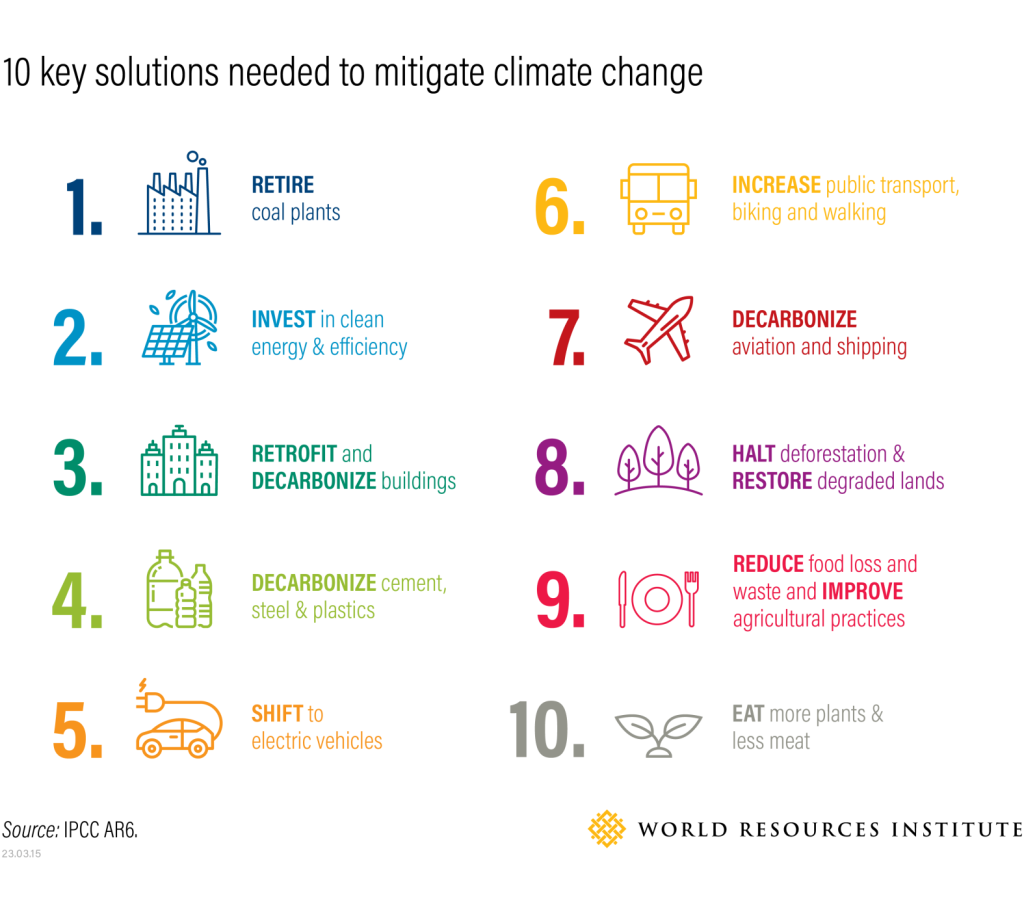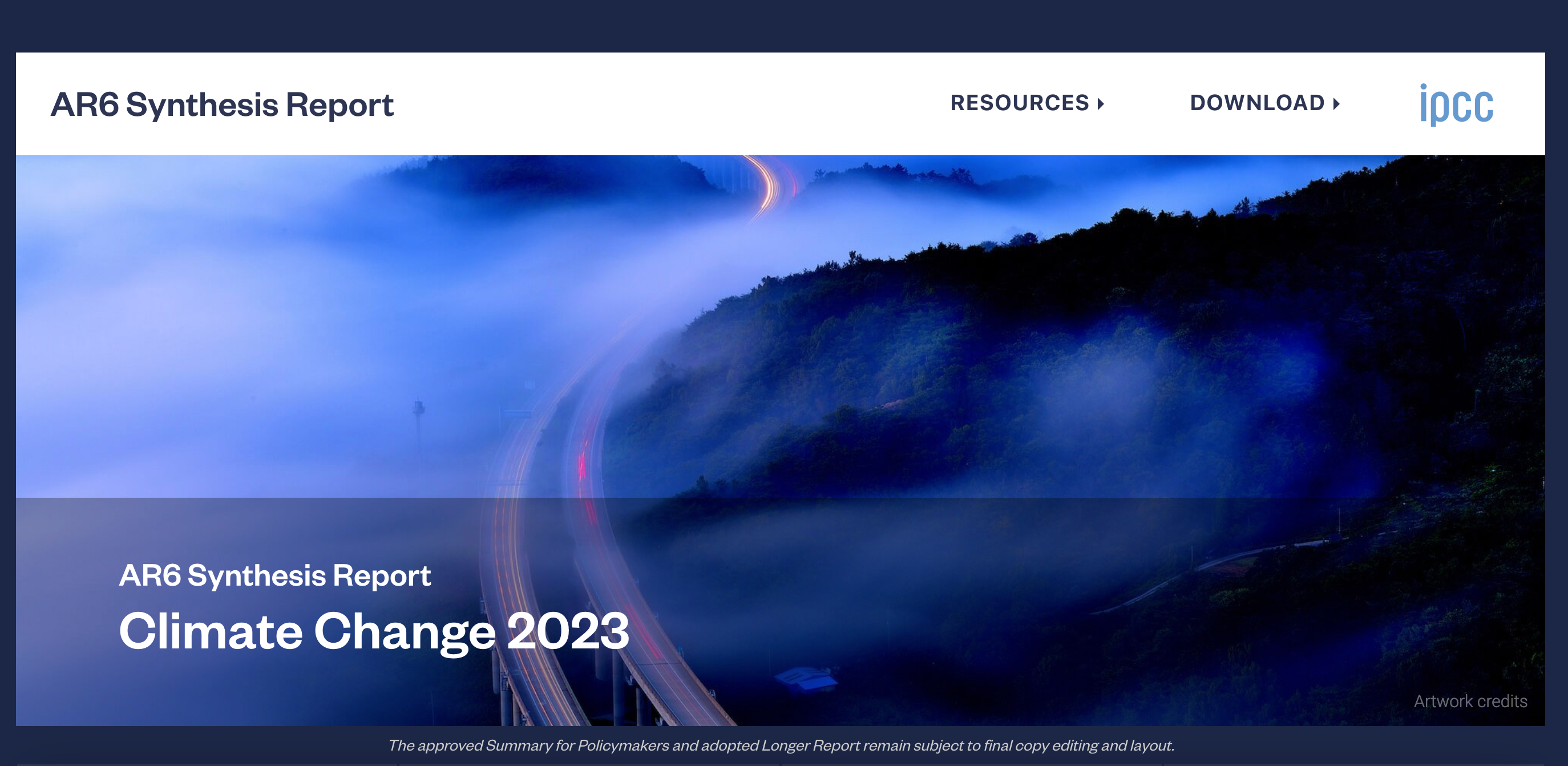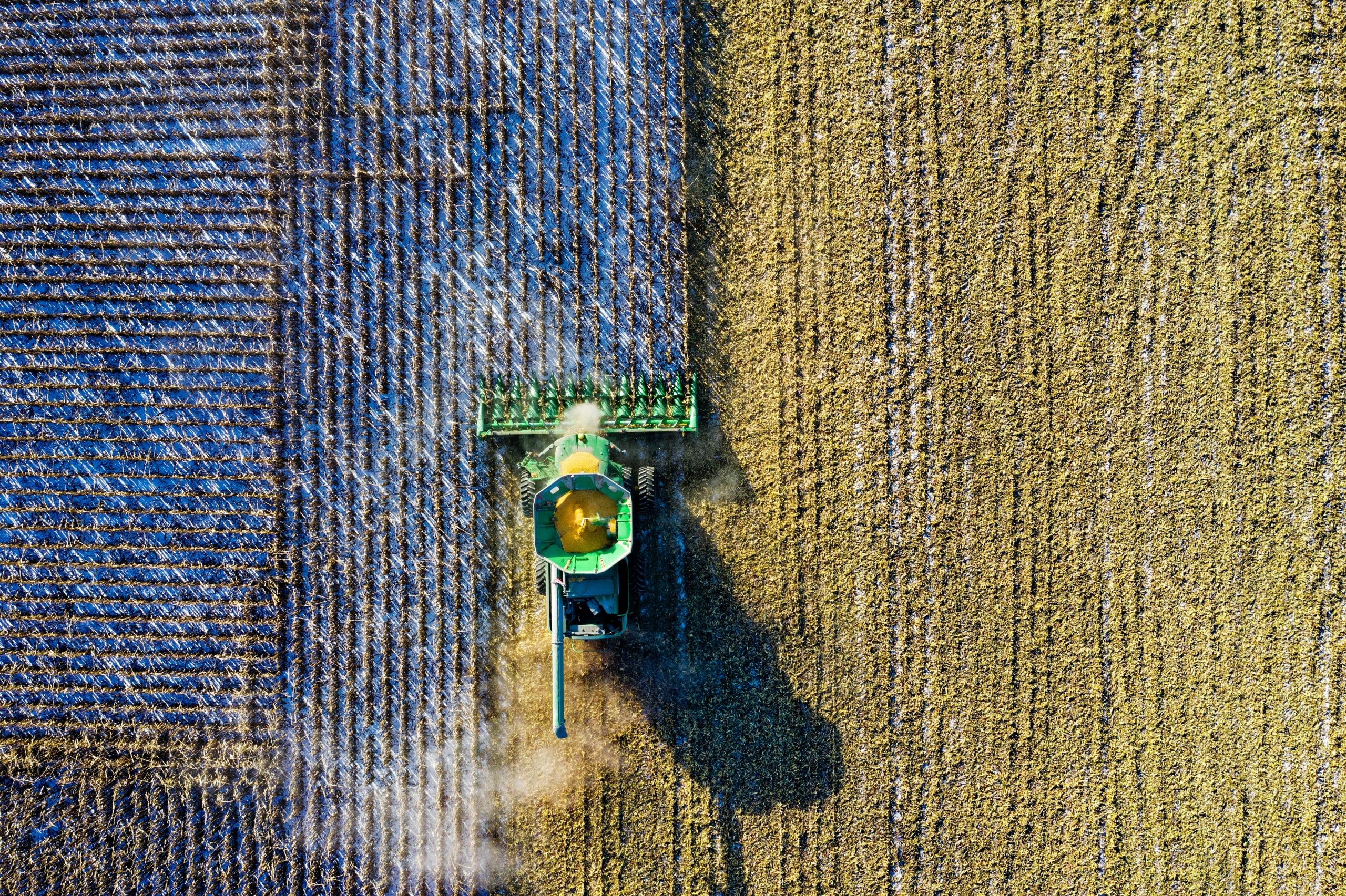Intergovernmental Panel on Climate Change’s (IPCC) Climate Change 2023: Synthesis Report provides the main scientific input to COP28 and the Global Stocktake at the end of this year, when countries will review progress towards the Paris Agreement goals. The report details the disastrous consequences of increasing greenhouse gas (GHG) emissions across the world, as well as the increasingly dangerous and irreversible risks arising if we fail to change course, while at the same time also offering hope. It identifies readily available, and in some cases, highly cost-effective actions, emphasising that the window to address the climate crisis is rapidly closing.
World Resources Institute highlights 10 key findings we need to know:
- Human-induced global warming of 1.1 degrees C has spurred changes to the Earth’s climate that are unprecedented in recent human history. Changes to the climate system are now happening in every corner of the world and any additional increase in terms of warming will increase the magnitude of these changes.
- Climate impacts on people and ecosystems are more widespread and severe than expected, and future risks will escalate rapidly with every fraction of a degree of warming. Adverse climate impacts are already more far-reaching and extreme than anticipated. In some parts, people are facing severe water scarcity greater susceptibility to the spread of vector-borne diseases and slowing improvements in agricultural productivity.
- Adaptation measures can effectively build resilience, but more finance is needed to scale solutions. With sufficient support, proven and readily available adaptation solutions can build resilience to climate risks and, in many cases, simultaneously deliver broader sustainable development benefits.
- Some climate impacts are already so severe they cannot be adapted to, leading to losses and damages. Highly vulnerable people and ecosystems are already struggling to adapt to climate change impacts. For some, effective adaptation measures do exist, but implementation is constrained, while some already face or are fast approaching “hard” limits to adaptation which means no existing adaptation strategies can fully avoid losses and damages.
- Global GHG emissions peak before 2025 in 1.5 degrees C-aligned pathways. There is a more than 50% chance that the world may hit its temperature threshold much sooner than anticipated.
- The world must rapidly shift away from burning fossil fuels — the number one cause of the climate crisis. A mix of strategies can help avoid locking in carbon dioxide emissions and avoid surpassing the limit.
- We also need urgent, systemwide transformations to secure a net-zero, climate-resilient future. Deep emission cuts are necessary across all of society and industries to combat the climate crisis. Policy measures that make these changes less disruptive can help accelerate needed transitions.
- Carbon removal is now essential to limit global temperature rise to 1.5 degrees C. Carbon removal encompasses both natural solutions, such as sequestering and storing carbon in trees and soil, as well as more nascent technologies that pull carbon dioxide directly from the air.
- Climate finance for both mitigation and adaptation must increase dramatically this decade. Public and private finance flows for fossil fuels today far surpass those directed toward climate mitigation and adaptation. Even though there have been some improvements in this area, much more is still required to achieve global climate change goals.
- Climate change — as well as our collective efforts to adapt to and mitigate it — will exacerbate inequity should we fail to ensure a just transition. The effects of climate change already hit poorer, historically marginalised communities the hardest. With regards to this, the IPCC identifies a range of measures that can support a just transition and help ensure that no one is left behind as the world moves toward a net-zero-emissions, climate-resilient future.

The report reiterates that humans are responsible for all global heating over the past 200 years leading to a current temperature rise of 1.1°C above pre-industrial levels, which has led to more frequent and hazardous weather events that have caused increasing destruction to people and the planet. The report reminds us that every increment of warming will come with more extreme weather events.
 Back to previous page
Back to previous page






